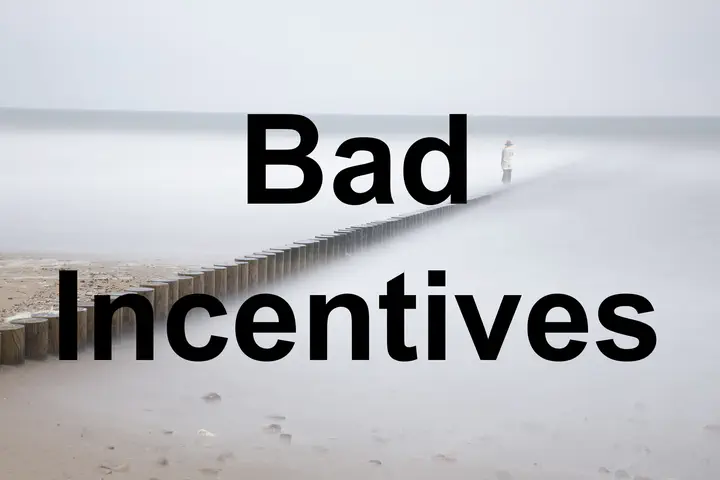Bad Incentives

The Climate Service Provider (CSP) industry is growing rapidly to meet demand.
In this drive to meet growing demand, a number of issues rooted in adverse incentives have been overlooked.
Issue #1: Price competition, asymmetric information, and multi-decadal ‘discovery time’
“In many ways, the marketplace is operating on blind faith in model validation and the professional competence in applying those models,” with some “products and services that may be operating outside of the bounds of scientific merit” (Keenan, 2019, “A climate intelligence arms race in financial markets” Science.)
“If providers of climate forecasts are paid upfront irrespective of accuracy, you don’t need to be an economist to spot the problem with that arrangement.” Mark Roulston
Issue #2: Possibility of ‘results-led’ research. Parallels with Credit-Rating Agencies pre-2007!
Issue #3: The ‘public good’ nature of much climate-risk information.
If privately funded: how to restrict access (to private-good or club-good status) so that individual organisations can benefit from funding the development of climate-risk information?
If publicly funded: how to fund this very applied type of research, in the required frequency of updates, when the output isn’t in the form of a piece of work suitable for a high-ranked academic journal?
Issue #4: The ‘downscaling’ from global models is more questionable on multi-decadal horizons of climate change.
Prcisions vs. accuracy, and ‘false precision’. For box-ticking exercises low accuracy might not matter. But for informing societally transformative policies, regulations, and business-investment decisions, false precision and low accuracy are fundamentally problematic in their consequences: misallocation of effort, resource, and painful sacrifice (which is on the horizon).